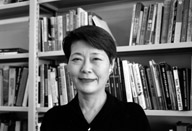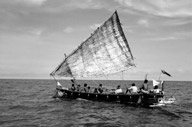Juror
Ichioka Yasuko
 [Juror’s Statement]
[Juror’s Statement]
Without involvement in TV documentary making, I would never have connected so deeply with people or shared such bonds. Sometimes I felt like I could jump with joy, but sometimes it nearly broke my heart.
My subjects have always been “ordinary” people, or “solitary lights,” one could say. Even after my field broadened to the Asia Pacific region, my concern and empathy remained unchanged. The Great East Japan Earthquake brought it home to me that “ordinary life, the light of ordinary people” is irreplaceable. Indeed, many documentaries have depicted the stories and destinies of “ordinary people.” Through such small windows, we are able to see the larger picture of the world and think about what human beings really are.
Looking at the lineup of this year’s International Competition, I see many associations with myself: I am familiar with places such as Indonesia and Yunnan, the ethnographic point of view, and the era of the Vietnam War, which I myself experienced in real time; even orangutans evoke memories of the forests in northern Sumatra. The role of jury member will be agonizing, but I’m ready to enjoy it.
| Ichioka Yasuko Born in 1939 in Changchun, China, Ichioka graduated from the Faculty of Humanities of Tokyo Metropolitan University in 1962 and entered Nippon Television Network Corporation. In 1964, she joined the production team for Non-Fiction Theater (1962–68), a pioneering TV documentary series, and started making programs under the producer Ushiyama Junichi. Tachi’s Family (1965), from that series, won the gold prize at the National Association of Commercial Broadcasters in Japan Awards in 1972. Ichioka also took part in the foundation of Nippon A-V Productions, led by Ushiyama. She worked as both producer and director of the Our Wonderful World series, broadcast from 1966 to 1990, focusing on life and culture in the Asia Pacific region from an ethnographic point of view. Kula—Argonauts of the Western Pacific (1971) is representative of this series. The Asmat, co-produced with Dea Sudarman in Indonesia, was awarded the Golden Marzocco at the Festival dei Popoli (Florence, 1982), and The Gisaro: The Sorrow and the Burning also received a prize at the same festival (1987). From 2001 to 2007, as a professor at Ritsumeikan Asia Pacific University, she taught classes in field research and video making, and her students’ work Torch of Faith Koyo-Mai: A Modern-Day Meeting of the Divine and the Earthly received an award for excellence at The Age of Regionalism Video Festival in 2006. |
Kula—Argonauts of the Western Pacific
(Kula—Nishitaiheiyo no enyo kokaisha) JAPAN / 1971 / Japanese / Color / Blu-ray (SD) / 66 min
JAPAN / 1971 / Japanese / Color / Blu-ray (SD) / 66 min
Director: Ichioka Yasuko
Research: Furusawa Taku, Inoue Tamotsu
Photography: Kageyama Masahide, Nishiyama Haruo, Nishida Hiroyuki
Editing: Ikeda Ryuzo
Sound Director: Morimoto Takao, Kimura Tetsujin
Music Composer: Sato Masaru
Narrator: Kume Akira
Producer: Ushiyama Junichi
Production Company: Nippon Television Network Corporation
Kula is a ceremonial exchange system of shell ornaments conducted among the island communities of the Trobriand and other islands of the West Pacific. The crew films in detail how the ornaments circulate from island to island across the seas, and the shamanism and ceremony associated with this tradition. Successfully recording on film the tradition made famous through Bronislaw Malinowski’s writing, the film is a monument in ethnographic filmmaking. The sweeping aerial shot of a fleet of canoes making its way to a neighboring island is unforgettable. Produced as part of Nippon Television’s 24-year Our Wonderful World series, the film took three years to make.
My Television: Tachi’s Family, Ama —Japan’s Women of the Sea— >>
